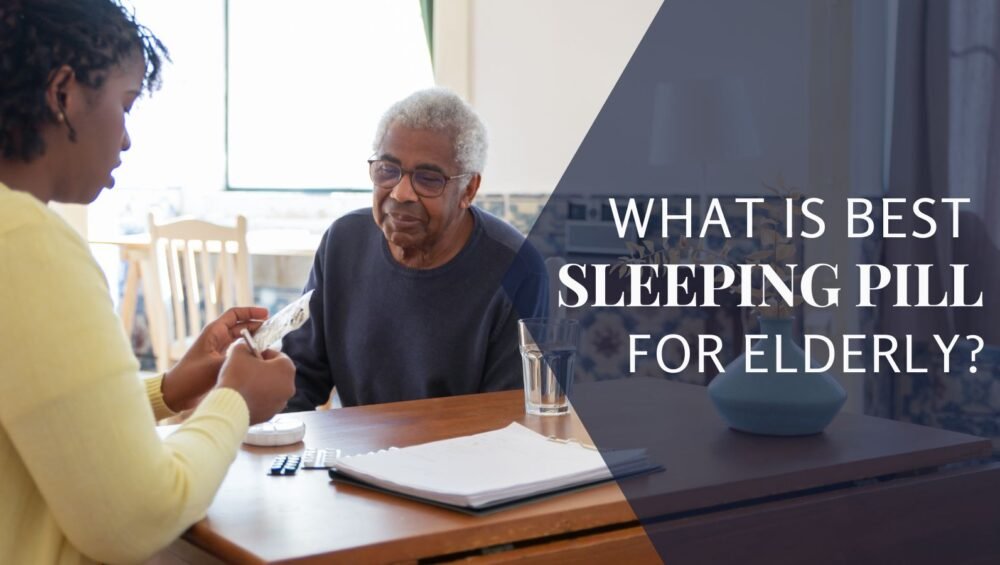Sleep disturbances are increasingly common/many seniors experience difficulty falling asleep, staying asleep, or waking up too early. Insomnia can have a significant impact on the quality of life of older adults, leading to daytime fatigue, irritability, and difficulty concentrating. To combat insomnia, many elderly individuals may be prescribed sleep medication such as zopiclone. In this blog, we will discuss the effects and benefits of using zopiclone as a sleep aid for seniors.
What is Zopiclone?
It is a sedative-hypnotic medication that is commonly prescribed for the treatment of insomnia. It is a non-benzodiazepine medication that works by enhancing the activity of the neurotransmitter gamma-aminobutyric acid (GABA) in the brain. This increased GABA activity helps to calm the central nervous system, promoting relaxation and sleep.
Effects of Zopiclone 7.5mg:
Zopiclone 7.5mg is a potent sedative that can induce sleep quickly, typically within 30 minutes of taking the medication. It is a short-acting medication, meaning it only stays in the body for a few hours, which is ideal for individuals who struggle with falling asleep but do not want to feel groggy in the morning. The effects of sleeping pills can last up to 8 hours, providing the user with a full night’s rest. However, it is important to note that the medication may not be effective for everyone, and its effectiveness may decrease with prolonged use.
Benefits of Zopiclone for the Elderly:
There are several benefits to using sleeping tablets 7.5mg as a sleep aid for the elderly. Firstly, it can help to improve the quality and duration of sleep, leading to improved daytime functioning and overall quality of life. Secondly, it can help to alleviate symptoms of anxiety and depression, which are commonly associated with insomnia. Lastly, it may reduce the risk of falls and other accidents associated with sleep deprivation in older adults.
However, it is important to note that zopiclone is not without its risks. It can cause drowsiness, dizziness, and impaired coordination, which can increase the risk of falls and other accidents, especially in older adults. Additionally, zopiclone may interact with other medications and supplements, which can increase the risk of adverse effects.
Other After Effects:
- Inducing Sleep: Sleeping pills work by slowing down brain activity and inducing a state of relaxation, which can help an adult fall asleep faster.
- Improving Sleep Quality: Some sleeping pills can improve the quality of sleep by reducing the number of awakenings during the night, increasing the total duration of sleep, and improving the overall efficiency of sleep.
- Daytime Drowsiness: Many sleeping pills can cause daytime drowsiness or fatigue, which can impact an adult’s ability to perform daily activities, operate machinery, or drive a vehicle.
- Dependency and Tolerance: Regular use of sleeping pills can lead to dependence and tolerance, which means that an adult may need to take higher doses of the medication to achieve the same effect over time.
- Side Effects: Sleeping pills can cause a range of side effects, including dizziness, nausea, dry mouth, headaches, and cognitive impairment. In some cases, sleeping pills can also cause more serious side effects, such as sleepwalking or sleep-driving.
- Interactions with Other Medications: Sleeping pills can interact with other medications, including prescription drugs, over-the-counter medications, and supplements. This can increase the risk of side effects or lead to other health complications.
Overall, while sleeping pills can be effective in helping an adult achieve better sleep, they should be used cautiously and under the guidance of a healthcare professional. It is important to carefully weigh the benefits and risks of using sleeping pills and explore alternative treatments for insomnia, such as cognitive-behavioural therapy, relaxation techniques, and sleep hygiene practices.
Conclusion:
In conclusion, Zopiclone 7.5mg can be an effective sleep aid for the elderly when used under the supervision of a healthcare professional. It can help to improve the quality and duration of sleep, alleviate symptoms of anxiety and depression, and reduce the risk of falls and other accidents. However, like all medications, it is important to weigh the benefits against the risks and to use it only as prescribed. It is also important to consider alternative non-pharmacological treatments for insomnia, such as sleep hygiene practices and cognitive-behavioural therapy, before resorting to medication.







